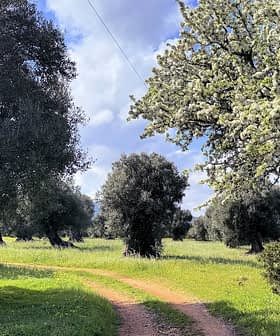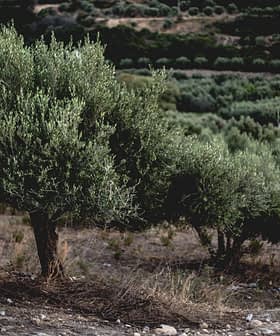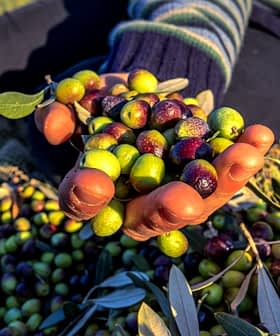A study has examined how oil mills in central Algeria can make use of olive oil production byproducts by transforming them into compost, thus minimizing pollution and even generating additional sources of income for the olive oil industry.
According to the website of the Delegation of the European Union to Algeria, the study was undertaken as part of the Economic Diversification Support Programme, known as DIVECO, financed by the European Union to improve economic performance in the agricultural and food production sectors in Algeria.
See Also:Articles about Sustainability
Olive oil production creates a significant amount of waste. To produce 15 liters of olive oil, 40 kg of orujo (solid waste generated by the traditional methods of extraction made up of the skin, remaining pulp and pits of the olive fruit) and 70 kg of amurca (dark-colored liquid waste and sediment) of waste products are left over.
These byproducts are a considerable source of pollution in the central region of Algeria where 78 percent of olive mills are located. More than 100,000 tons of the waste have been dumped in the area, adversely affecting fish and aquatic life, the quality of drinking water and causing an increased salinity of the soil, making land uncultivable. Fires have also been caused by the fermentation of orujo.
Olive oil producers do not have an alternative to disposing of this waste in land dumps, a practice which is not in line with laws governing the disposal of liquid industrial waste.
The project was undertaken at the request of the Association Professionnelle des Oléifacteurs de la Région Centre (APOC), the association of the central Algeria’s olive oil producers.
While the possibility of using the waste to produce biogas was deemed too expensive in a country where gas is reasonably priced, the study concluded that the simplest and cheapest solution would be composting. This would reduce the volume of waste and stabilize it while producing compost which can be used for farming.
In order to test the plan, the team set up a pilot project creating a compost unit capable of processing 4,000 tons of waste per year.
APOC will be presenting the results of the final study to the Algerian ministry of the environment.








